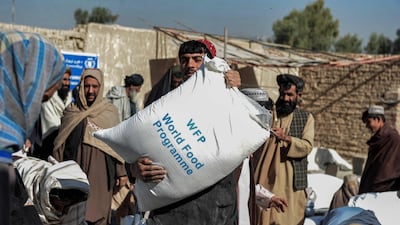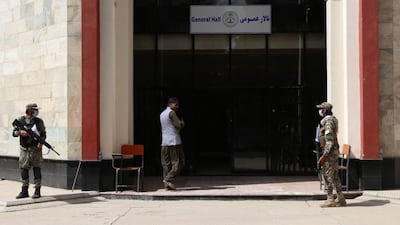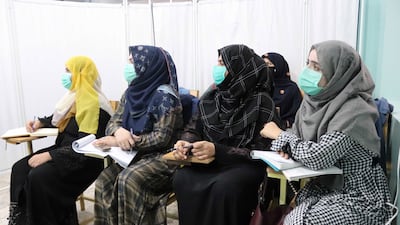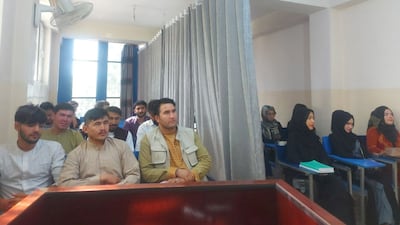The UN Security Council on Wednesday unanimously adopted a US-proposed resolution to help humanitarian aid reach desperate Afghans, while seeking to keep funds out of Taliban hands.
The resolution, a first step by the UN after months of debating how to avert a humanitarian catastrophe amid economic meltdown in Afghanistan, was welcomed by the Islamists as a "good step."
Since the Taliban swept back to power in August, billions of dollars in aid and assets have been frozen by the West in what the UN has called an "unprecedented fiscal shock" to the aid-dependent Afghan economy.
For months now, observers have been warning that millions face a choice between starvation or migration during a food, fuel and cash crisis throughout the bitter winter.
The Security Council resolution allows aid to flow into the country for one year without breaching sanctions aimed at isolating the Taliban, whose regime is not recognised by the international community.
"We appreciate it [as] it can help Afghanistan's economic situation," Taliban spokesman Zabihullah Mujahid said.
Mr Mujahid said he hoped the international community would also "speed up" the removal of crippling economic and banking sanctions imposed on entities linked to the group.
"UN sanctions are an important tool to respond to threats and human rights abuses, but we must make sure these sanctions do not hinder the delivery of urgently needed aid," US Secretary of State Antony Blinken said.
The US also announced additional steps easing sanctions against the Taliban to allow aid, updating guidance to make it clear that exports of goods and cash transfers are allowed if they do not go to people on whom US sanctions have been imposed.
In Afghanistan, aid workers may be involved in financial transactions with ministries led by sanctioned people. The UN resolution ensures that the aid workers are not breaching sanctions.
The text also includes the monitoring aid destination and a UN report on the functioning of the assistance every six months.
The UN undersecretary for humanitarian affairs, Martin Griffiths, welcomed the resolution, saying it would allow more than 160 humanitarian organisations "providing critical food and health assistance in Afghanistan ... to implement the work we have planned".
After the Taliban returned to power, the US froze nearly $9.5 billion from the Afghan central bank and the World Bank also suspended aid to Kabul.
There is no banking infrastructure to speak of in Afghanistan and without funds to pay civil servants, families have resorted to selling furniture and jewellery to make ends meet.
With the country also battered by drought and the Covid-19 pandemic, the UN this month warned that the fiscal shock could cause the economy to contract by 20 per cent within a year.
International aid had represented 40 per cent of Afghanistan's GDP and financed 80 per cent of its budget.
"As the single largest donor of humanitarian aid to the Afghan people, the United States provided nearly $474 million in humanitarian assistance in Fiscal Year 2021," said USAid administrator Samantha Power.
"And in the coming weeks, we will provide the people of Afghanistan one million additional Covid-19 vaccine doses through Covax, bringing the total to 4.3 million doses."
The World Bank announced on December 10 that it would provide $280m in humanitarian aid to Unicef and the World Food Programme by the end of December, to be distributed in Afghanistan.










